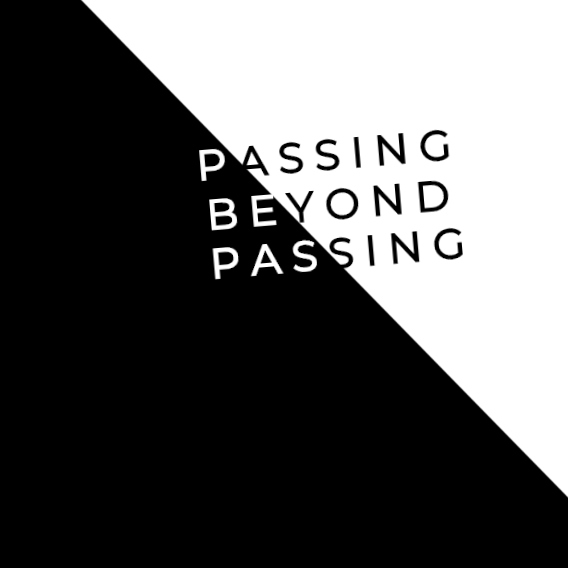Passing takes a multitude of different shapes and forms, which are impossible to enumerate completely. However, to help underscore the range of possible embodiments that passing can take, here are a few examples to help situate the complexities and the dynamics of passing.

Rachel Dolezal, a former president of the Spokane, WA chapter of the NAACP, made headlines in 2015 when she was found to be passing as a black woman.
Racial Passing occurs when a member of one racial group is accepted as a member of a different race with the help of natural (e.g. skin complexion) or unnatural (e.g. skin bleaching) physical attributes. Jim Crow laws established the segregation of public facilities. Facilities for African Americans were consistently inferior and underfunded compared with those available to white Americans or those who could pass for white.
Segregation by law existed in Southern states. In Northern states it was simply a matter of fact. Housing segregation was enforced by private covenants, bank lending and job discrimination. Racial passing refers to the subversion of racial identity categories solely based on phenotype. Artist Adrian Piper explores the idea of racial assignment based on physical characteristics in her much of her work including “Self-Portrait Exaggerating My Negroid Features” (1981).

Paris is Burning (1990)
For many years, feminist theory has maintained that all gender performance is masquerade. In other words, we all perform learned gender identities. Gender Passing usually refers to the various ways a person subverts their assumed gender designation. For example, passing as a member of a different gender group usually involves conforming to cisgender/gender normativity, with the help of the universally accepted norms, dress codes, hairstyles and ways that men and women might look. For example, someone who is Trans may choose to conform to dominant codes of dress and styling to be more feminine or more masculine (depending on their perceived gender identity) when in spaces where they are not “out” or feel unsafe. Jennie Livingston’s controversial film Paris is Burning explores one form of gender masquerade.
Class Passing involves masquerading one’s socioeconomic status. It might involve passing as a member of a higher class or socioeconomic status. Conversely, it could involve someone passing as a member of a low-income community in order to conceal privilege or entitlements. Masquerading as middle class requires that you identify the key trappings of middle-class life, and then make sure that your household or image upholds those trappings. The trappings of middle-class life may involve necessities, or it may involve luxury items. Passing also involves making choices with an eye toward falling within certain bounds of middle-class lifestyles. A house in the suburbs is often a middle-class marker — but if you have a house in the suburbs, you need a car. You probably need two.
“Cultural Passing” involves pretending to know about certain cultural events, trends, movements, or ideas when engaging in conversation or activities with others. In a society dominated by the internet, social media, and constantly evolving social movements the expectation that everyone has access to, or knowledge about the latest trends, events, and cultural moments has taken hold. If a person does not have access or knowledge to these trending utterances they may attempt to conceal their lack of knowledge in a conversation to avoid taunting.
Ideological Passing refers to the practice of aligning oneself with the same ideological framework as others, when engaging in a conversation where a viewpoint differing from one’s own is more prominent. This might involve pretending to be a feminist or a liberal or a conservative among like-minded individuals. Failing to defend positions you strongly believe out of fear that you will encounter backlash or hostility.
Sexual Passing refers to the process of masquerading as a member of a group with a sexual orientation other than your own. This usually refers to conforming to dominant heterosexual/heteronormative conventions. For example, a bisexual woman may choose/need to pass as straight when in certain spaces, like around family to whom she’s not “out.” It might also involve pretending to be a sexual minority when in fact you are not.
 In 2017, Lauren Michele Jackson wrote an article for Teen Vogue called “We Need to Talk About Digital Blackface in Reaction GIFs.” In her article, Jackson explains that the concept of digital blackface stems from early 19th century minstrel shows, where white actors would use a paste made of burnt cork to darken their faces and “[use] costume and behaviors to act as black caricatures. The performances put society’s most racist sensibilities on display and in turn fed them back to audiences to intensify these feelings and disperse them across culture” (Jackson).
In 2017, Lauren Michele Jackson wrote an article for Teen Vogue called “We Need to Talk About Digital Blackface in Reaction GIFs.” In her article, Jackson explains that the concept of digital blackface stems from early 19th century minstrel shows, where white actors would use a paste made of burnt cork to darken their faces and “[use] costume and behaviors to act as black caricatures. The performances put society’s most racist sensibilities on display and in turn fed them back to audiences to intensify these feelings and disperse them across culture” (Jackson).
This tradition somewhat continues with the use of online gifs of black people by non-black people to display excessively dramatic, sassy, and angry emotions that have been continuously used to characterize black people. Digital Passing involves using the anonymity of the internet to provide users with the opportunity to be whoever they want, using tools like the one’s described in Jackson’s article, even if that person is nothing like the one sitting behind the screen.
9 to 5 Passing refers to using one of the other forms of passing in order to fit into the dominant culture at one’s workplace. Men often conform to predominantly male work environments by failing to challenge the gender imbalance and the exclusive culture. Similarly, female dominated fields and workplace environments might fail to challenge the false notion that men are ill-suited for particular kinds of labor like early childcare. Another example of this could be that a black man with a lighter complexion may choose to racially pass in his predominantly-white male tech job to avoid feelings of discomfort and lack of safety.

Lakeith Stanfield in Sorry to Bother You (2018)
In “Five Reasons Why People Code-Switch,” Matt Thompson lists several reasons behind why people use code switching – switching between two different languages or accents – or Vocal Passing to communicate with others. 1) it happens inadvertently: for many multilingual individuals, it’s easy for words from different languages to move fluidly within and between each other, especially when they’re similar. 2) we want to fit in: many people code-switch to act or talk more like the people whom they’re around, whether it’s a conscious or unconscious decision. 3) we want to get something: in Boots Riley’s Sorry to Bother You (2018), the main character Cassius “Cash” Green adopts a “white voice,” after continuously getting hung up on during his telemarketing calls. By “talking white,” he is able to complete his calls and begins to thrive in his job. 4) we want to say something in secret: people who speak the same language or come from communities that have certain coded words or phrases may use those coded words to express something in public. 5) it helps as convey a thought: for languages like English that are made up of a large percentage of idioms, there are certain words and phrases that don’t translate well, so in order to circumvent that, people who speak multiple languages may use a different word/phrase that more accurately describes what they’re trying to say.
